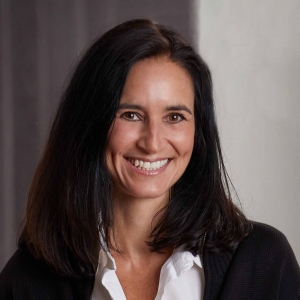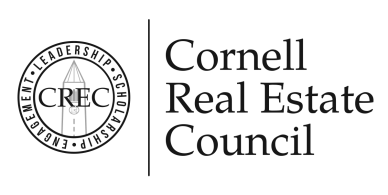Hotel School Students Learn from Industry Leaders as they Envision a Boutique Hotel Brand

Authored by Lisa Chervinsky ’89, Founder of Collective Vision Design, Ltd and Lecturer at Cornell’s School of Hotel Administration
Hospitality is defined as the friendly and generous reception and entertainment of guests and visitors. The best hospitality experiences are those that are delivered in a seamless manner: the sense of arrival, aura of the physical space, and service touchpoints all seem to fit to deliver an immersive experience transporting one from their daily life. Both boutique hotels and major brands are preoccupied with how to craft an engaging experience to foster brand loyalty and establish a differential advantage within this highly competitive marketplace.
In a new elective, Hospitality Visioning & Concept design, students drew upon their knowledge in real estate development, marketing, and operations, to envision a hotel concept, or brand story, and developed it with a team to understand how this concept informs site selection, program, design, and operational procedures. As they developed their boutique concepts for sites in the Monterey Bay area they gained valuable insights from industry leaders who graciously shared their expertise through zoom meetings with the students.
At the onset of the semester Ron Swidler, Chief Innovation Officer of The Getty’s Group joined the students and so eloquently described the nuances of branding and design and how they work together. Relating hospitality concept development to a stage production, he explained that the “script” is the brand story which conveys a narrative; the “set design” is the physical hotel asset which supports the story; and the hotel staff are the “actors” that bring the story to life through tone, touchpoints, and brandable moments. All three elements must seamlessly work together to convey the story and make emotional, memorable connections with guests.
To gain insight into what makes a successful hospitality brand, the students studied Graduate Hotels and more specifically their newest hotel, New York Roosevelt Island at Cornell Tech. The case study, coordinated by recent Hotel School grad and member of Graduate’s marketing team Kayla Sherwyn, provided students insight into Graduate’s approach to developing each hotel’s unique identity inspired by local folklore and university culture. Krissy Melendez, Senior Concept Director explained that their eclectic approach with elements from various eras evokes nostalgia and creates connections with guests of all ages. Additionally, providing a “Living Room to the community” inviting guests and locals alike to experience their hotels is critical to the brand’s neighborhood focus.
Equipped with their newfound knowledge, students conducted location research for their Monterey Bay sites to understand the location personality, demand generators and competitive set to identify potential opportunities and seek inspiration for their brand concepts.
As their brand stories developed, additional insights were shared by branding and design experts at Marriott. Tony Nacci, Senior Director of Brand Development for Autograph and Tribute emphasized that successful branding seeks to create an emotional connection with guests fostering brand loyalty. Alignment of branding, design, and operations is key to achieving this by providing an environment that captures the essence of the brand and signature memorable moments the guests experience. Elaborating on these ideas, Alison Sobeck, Senior Interior Design Manager provided strategies for expressing the brand through the interior environment. She emphasized that while developing the design narrative, it is important to think about how you want the guests to feel, utilizing design tools including colors, textures, and details to evoke a mood.
The students applied this knowledge to further develop their brand stories and create conceptual designs for their hotel brands. Captivated by the inherent beauty of Northern California, unique personality, and local culture of their chosen sites the three teams developed community centered brand concepts with a focus on sustainability. Their work was impressively comprehensive, thoughtful, and professional. While impossible to summarize the depth of their brands in just a few sentences, the following is an effort to capture the essence of their concepts:
Kabernet: A spirited mountain escape for adventure seekers and the young at heart focused on viticulture, fine food, and curated experiences. The brand is playfully expressed through rustic architecture with unexpected pops of color and pattern.
The Art House: A community centered, modern retreat for artists, writers, and creatives to find inspiration and hone their craft in a collaborative studio environment. All features of the hotel are carefully crafted from the intentional architecture with biophilic accents to the artful plate presentation at the specialty restaurant.
Costeno: A holistic wellness resort on the rural coast inspired by the practices of the Ohlone tribe who once inhabited the lands. Striking a harmonious balance with nature and fostering connections with the local agricultural community, the barn, greenhouse and gardens host farm to table dining, wellness activities, social events and farmers markets.
The knowledge gained through the guest speakers throughout the semester not only proved to be invaluable for the students to develop their projects, their participation was a welcome respite from a challenging year. The willingness of our colleagues to dedicate their time to provide real world insight speaks to the strength of the hospitality industry and the special nature of the Hotel School. Many thanks to all those who participated in making this a special experience.
Lisa Chervinsky is Founder of Collective Vision Design, Ltd and Lecturer at Cornell’s School of Hotel Administration teaching courses in hotel development, planning and design. As a licensed architect and former Hotelie, her in-depth understanding of the business of hospitality and creative vision enable her to not only inspire the next generation of hospitality leaders but impart them with the skills to succeed in this highly competitive field. Over her 25+ year career, Lisa has developed iconic and award-winning hospitality spaces for both branded and boutique operators in the US and abroad, leading teams from initial conception through construction and pre-opening. Lisa believes that innovative thinking and effective working methods are critical to enable organizations to sustain both profitability and a strong life-work balance for all employees and operates her collaborative design firm based on this model.




